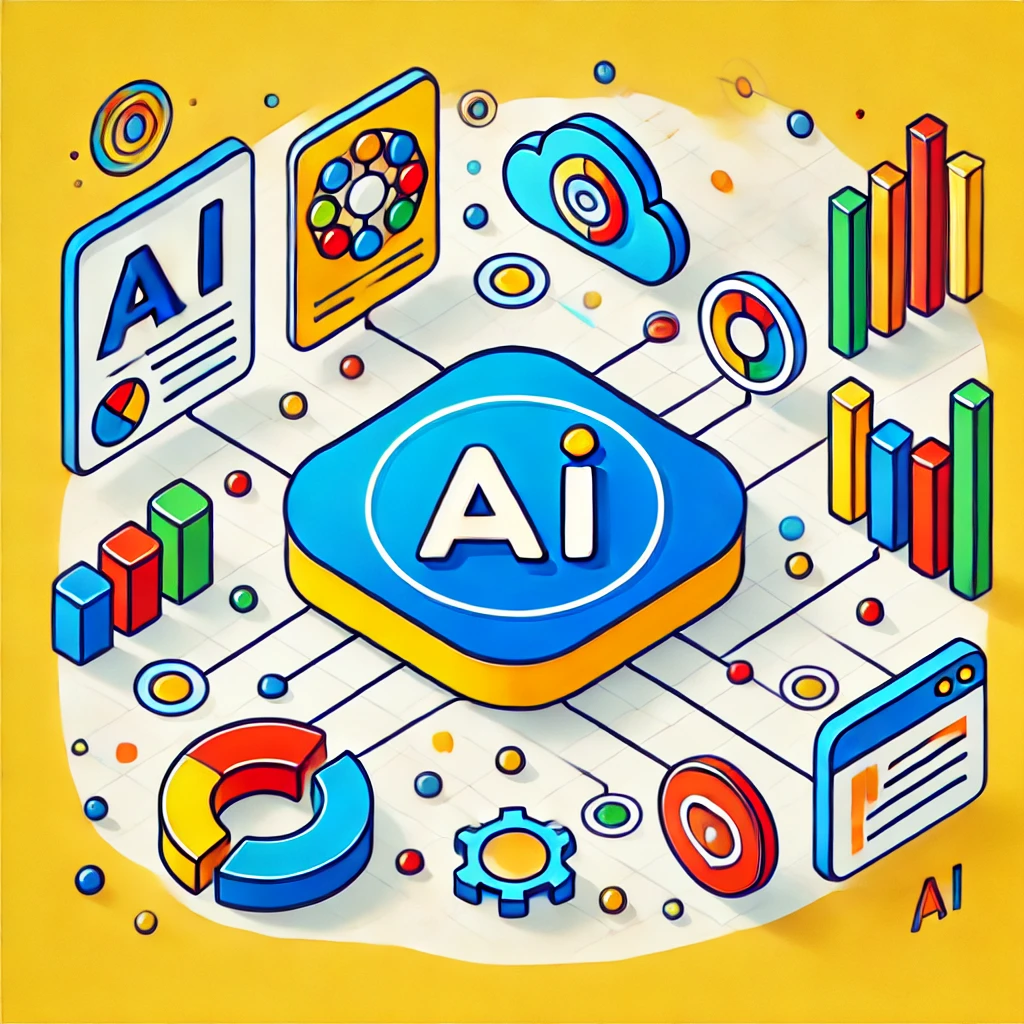How AI is Shaping the Future of Digital Advertising

Artificial intelligence (AI) is transforming digital advertising by optimizing the delivery of personalized content, improving customer targeting, and automating ad management processes. As AI continues to evolve, it offers new opportunities for businesses to engage their audiences more effectively and efficiently. From real-time bidding in programmatic advertising to predictive analytics for customer behavior, AI-driven tools are reshaping the landscape of digital marketing, driving better results, and maximizing return on investment (ROI).
1. Personalization and Targeted Advertising
One of the most significant impacts of AI on digital advertising is the ability to deliver personalized content at scale. AI algorithms analyze user data, such as browsing behavior, search history, and social media activity, to understand individual preferences and interests. This allows advertisers to deliver more relevant ads to specific audiences, increasing the likelihood of engagement.
Examples of AI-driven personalization:
- Dynamic ad content: AI can automatically generate different versions of an ad to match the preferences of various audience segments. For instance, an e-commerce company might show different product images or headlines based on a user’s past purchases or browsing history.
- Predictive targeting: AI algorithms can predict which users are more likely to engage with a particular ad based on historical data. This allows for more effective ad targeting, leading to higher conversion rates and reduced advertising costs.
Personalization not only improves the customer experience but also helps brands build stronger connections with their target audience.
2. Programmatic Advertising and Real-Time Bidding
Programmatic advertising uses AI to automate the buying and selling of digital ad space in real time. Through real-time bidding (RTB), advertisers can compete for ad impressions based on the user’s profile and browsing behavior. This approach ensures that ads are delivered to the right audience at the right time, maximizing the impact of the campaign.
How AI enhances programmatic advertising:
- Optimized bidding strategies: AI algorithms can analyze vast amounts of data to determine the optimal bid for each ad impression, considering factors like user behavior, device type, and time of day.
- Fraud detection: AI can identify patterns associated with fraudulent ad clicks and impressions, helping advertisers protect their ad budgets from wasteful spending.
Programmatic advertising powered by AI enables marketers to reach their target audience more efficiently and allocate their budgets more effectively.
3. Predictive Analytics for Customer Behavior
AI enables advertisers to anticipate future customer behavior through predictive analytics. By analyzing data from various sources, such as website interactions, social media activity, and purchase history, AI can identify patterns and trends that indicate a user’s intent to buy, subscribe, or engage.
Applications of predictive analytics in advertising:
- Customer segmentation: AI can segment audiences based on their likelihood to convert, allowing marketers to tailor their messaging and ad spend accordingly.
- Churn prediction: Predictive models can identify users who are at risk of disengaging or unsubscribing, enabling advertisers to deploy targeted retention strategies before customers are lost.
By leveraging predictive analytics, businesses can make data-driven decisions to improve campaign performance and optimize customer acquisition strategies.
4. Automating Ad Creation and Management
AI is also making ad creation and management more efficient by automating repetitive tasks and streamlining workflows. AI-powered tools can help marketers generate ad copy, design creative assets, and adjust bidding strategies without manual intervention.
Examples of AI in ad automation:
- Creative optimization: AI algorithms can test multiple variations of ad creatives and identify the most effective elements, such as images, headlines, and calls to action. This allows marketers to continuously optimize their campaigns for better results.
- Automated budget allocation: AI can dynamically adjust ad budgets based on real-time performance data, ensuring that spending is directed toward the most successful campaigns and platforms.
Automating ad management not only saves time but also ensures that campaigns are continuously optimized for maximum ROI.
5. Enhancing Customer Experience with Chatbots and Virtual Assistants
AI-driven chatbots and virtual assistants are becoming integral to digital advertising strategies, providing a more interactive and personalized customer experience. These tools can engage users in real time, answer questions, recommend products, and guide customers through the buying process.
Benefits of AI-powered chatbots in advertising:
- Instant customer support: Chatbots can handle multiple inquiries simultaneously, providing instant responses to common questions and directing customers to relevant information.
- Conversational ads: Some companies are integrating chatbots into their ad campaigns, allowing users to interact with the brand directly within the ad. This can lead to higher engagement and a more personalized user experience.
By integrating AI-powered chatbots into digital advertising strategies, businesses can create more engaging and effective campaigns.
6. Voice Search and Audio Advertising
With the increasing popularity of voice-activated devices like Amazon Echo and Google Home, voice search is becoming an important aspect of digital advertising. AI enables advertisers to optimize their content for voice search queries, making it easier for users to find relevant information through voice-activated assistants.
AI’s role in voice search and audio ads:
- Voice search optimization: AI can help marketers understand how users phrase their voice queries and adjust their content to match natural language patterns.
- Targeted audio ads: AI-powered platforms can analyze user data to deliver personalized audio ads through streaming services and podcasts, ensuring that the content resonates with the listener.
As voice technology continues to evolve, AI will play an increasingly important role in shaping audio-based advertising strategies.
Challenges and Ethical Considerations
While AI brings numerous benefits to digital advertising, it also raises challenges and ethical concerns:
- Data Privacy: The use of AI in advertising relies heavily on personal data, raising concerns about user privacy and data protection. Advertisers must comply with data privacy regulations and ensure that data is used responsibly.
- Bias in Algorithms: AI algorithms can inadvertently reinforce existing biases present in the data. This can lead to discriminatory advertising practices, such as targeting certain demographics while excluding others.
- Transparency and Accountability: As AI becomes more involved in decision-making, it is important for advertisers to maintain transparency and ensure accountability for AI-driven ad strategies.
Addressing these challenges will be crucial for building consumer trust and ensuring the responsible use of AI in advertising.
Conclusion
AI is shaping the future of digital advertising by enabling personalization, optimizing programmatic advertising, enhancing customer engagement, and automating ad management. As the technology continues to advance, AI will play a key role in making digital advertising more efficient, targeted, and effective. However, it is essential for marketers to address ethical concerns and prioritize transparency to ensure that AI-driven advertising remains fair and beneficial for both businesses and consumers.




